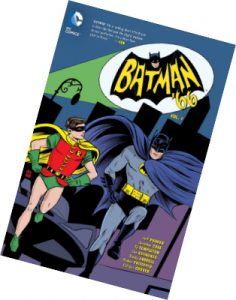Making friends with books
This is a relationship for life. It will never let you down, nor ever let you feel alone.
Many years ago I was tasked with keeping an eye on my baby sister who had only just begun to learn to kick her legs. I had just discovered the magic of books, specifically, comics, thanks to the fact that my dad always had a pile of them beside the bed, on the bed and under the pillow.

There was The Beano, The Dandy, action heroes like Superman, Batman and Robin, Flash Gordon — yes, all those characters you see on the silver screen and streaming live or otherwise on your small screens, were all born way back, in the early and mid-20th century! And don’t forget Phantom, Mandrake the Magician and a deadly character called Modesty Blaise, apart from kiddie characters like Richie Rich, Casper the Friendly Ghost, Little Dot. Then there were Bugs Bunny, the Road Runners, Beetle Bailey, Classics Illustrated, and comic books based on the antics of real-life comics Bud Abbot and Lou Costello, The Three Stooges, Laurel and Hardy. Oh, there were a lot of funny bones being tickled back then, my dad’s included.
I heard a ‘thud’ and the shrill cry of a baby. But I was so wrapped up in my ‘reading’ that nothing else registered.
That morning I managed to grab one and was immersed in it, looking at the pictures, as I hadn’t yet learned to read, when somewhere in the dim distant recesses of my consciousness, I heard a ‘thud’ and the shrill cry of a baby. But I was so wrapped up in my ‘reading’ that nothing else registered. Until the comic book was rudely snatched from my hand, and I was nose-to-nose with the fuming face of my mom holding my wailing baby sister in her arms.
Soon I learned to read well enough to be able to unravel the magic and mystery of every single one of the comic books in my dad’s collection.

That’s how I came to reading and the wonderful worlds opened up through books riding the wings of imagination and a willing suspension of disbelief, as Samuel Taylor Coleridge so memorably put it. Basically, what he meant was, forget everything else. Now, that’s easy to understand, and easier to do, especially today with all the platforms and devices available to us. Back in my time, all platforms and all devices fitted into one category: books. And the radio, of course. But you couldn’t carry the radio around and it was still early days of transistor radios.
Just imagine the scene: You and your book. Lost in a story. Who wrote it? Why does anybody write?
Go within. Search for the cause, find the impetus that bids you to write.
There was once a young man called Franz Xaver Kappus. In 1902, aged about 19, he was a student at the Theresian Military Academy in Wiener Neustadt, south of Vienna, and was struggling with a dilemma many of us struggle with: his career. He couldn’t decide whether to become a writer, or a soldier in the Austro-Hungarian army. So he did what anybody who is confused is well-advised to do: he sought advice from someone responsible.
The ‘someone responsible’ he turned to was not someone he knew in person, but a Bohemian-Austrian poet and novelist called Rainer Maria Rilke, who wrote in German. Along with his first letter to Rilke, young Franz also sent samples of his poems. Surprisingly, Rilke responded. He did not critique the poems; instead he advised the boy to look within himself: “Go within. Search for the cause, find the impetus that bids you to write. Put it to this test: Does it stretch out its roots in the deepest place of your heart?” He went on to write: “If, as a result of this turning inward… poetry should emerge, you will not think to ask someone whether it is good poetry… A piece of art is good if it is born of necessity.”

The correspondence between Kappus and Rilke spread over five or six years, during which the poet wrote nine more letters, in each of them offering timeless insights into life, love, the creative spirit, truth, faith and much more. First published in 1929, the slim collection entitled Letters to a Young Poet by Rainer Maria Rilke still has the capacity to stimulate, encourage, embolden, empower and change the life of anyone who reads it.
From: ‘The Fourth Letter’ (Letters to a Young Poet, by Rainer Maria Rilke)
You are so young, you stand before beginnings. I would like to beg of you… to have patience with everything that remains unsolved in your heart. Try to love the questions themselves, like locked rooms and like books written in a foreign language. Do not now look for the answers. They cannot now be given to you because you could not live them. It is a question of experiencing everything. At present you need to live the question.
From: ‘The Seventh Letter’
To love is also good, for love is difficult. For one human being to love another is perhaps the most difficult task of all, the epitome, the ultimate test. It is that striving for which all other striving is merely preparation. For that reason young people — who are beginners in everything — cannot yet love; they do not know how to love. They must learn it. However, the process of learning always involves time set aside for solitude. Thus to love constantly and far into a lifespan is indeed aloneness, heightened and deepened aloneness for one who loves.
From: ‘The Eighth Letter’
We have no reason to mistrust our world, for it is not against us. If it has terrors, they are our own terrors. If it has precipices, they belong to us. If dangers are present, we must try to love them. And if we fashion our life according to that principle, which advises us to embrace that which is difficult, then that which appears to us to be the very strangest will become the most worthy of our trust, and the truest.
